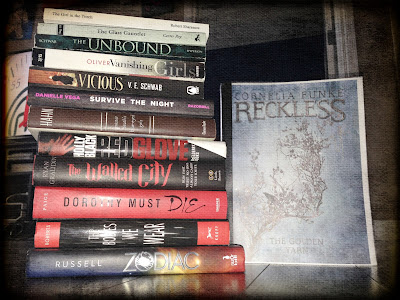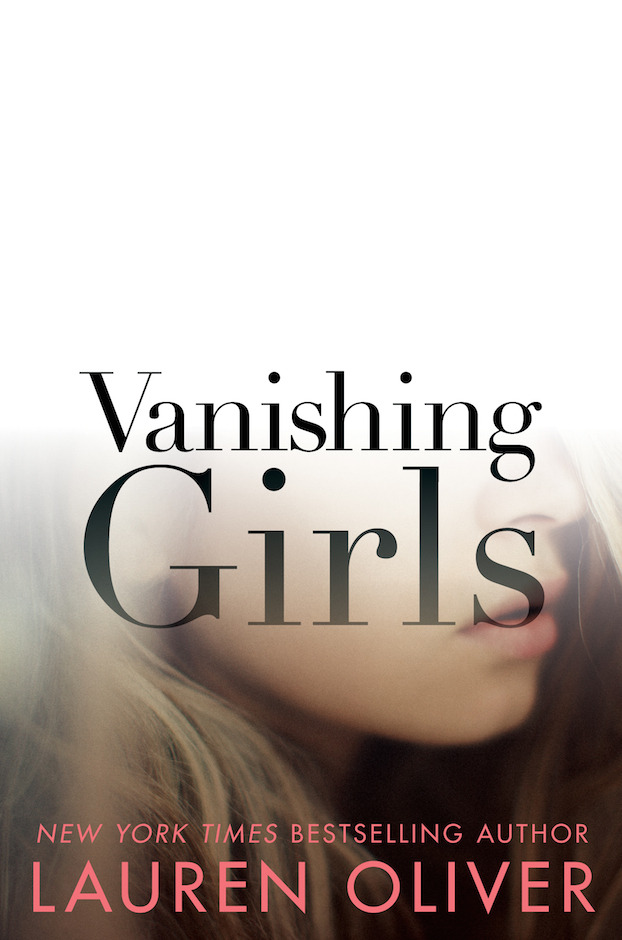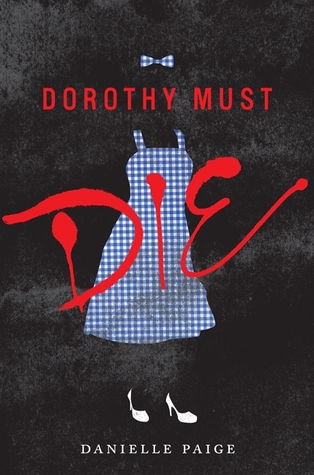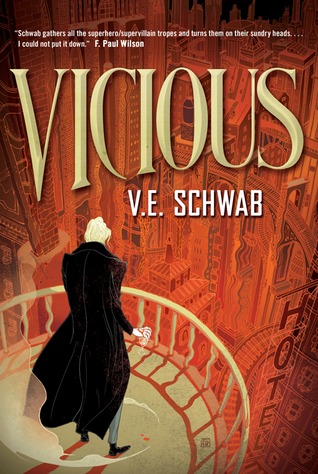Mostly, this year in reading brought a lot of new experiences for me. I decided that if I was offered a book to review, I would take on the project and give it a fair shot. (So long as it wasn't completely outside of my expertise. I'm not about to start reviewing non-fiction about the flight patterns of North American birds. Unless it's like, really good or something.)
Since the end of the year is usually a time of reflecting as well as setting new goals, I thought I'd take a look back at the books that I've read and reviewed this year. Not just as my own "Best Books of 2015" list, but also re-evaluating some of the reviews I left. So let's kick this sucker off.
The Unbound by Victoria Schwab
Ah, the Unbound. I went into this book not at all expecting what would come of it. The emotional impact from this book was huge. It hit me in all the right spots, and though my review for the book was full of synonyms for FUCKING AWESOME, looking back I can see that was probably due to how it connected with me and my experiences. Others may not be so enamored with the book simply because they didn't connect to Mac's struggle as intensely as I did. Even still, I stand by my review while admitting my bias. The truths this book touched on left me in tears, those sort of happy delighted tears borne of understanding and feelings of connection to others. That's mainly why I write and read: to connect to those around me through the way they express themselves and view the world. Sometimes a book will describe an intangible feeling so well that it feels like it touches in on my soul, like the story has transcended words and the author has just touched my mind to hers like the kids in the Chrysalids, and we don't need words because I can feel it. When that happens, it's like freaking magic. If you want to talk about book hangovers, this one left me moaning with pain. Especially after I found out that the series had been discontinued by the publisher, and I would have no more of this fabulous world to immerse myself in. And that brought out a whole other set of feels.
Vanishing Girls by Lauren Oliver
This almost seems like an unfair advantage, since Lauren Oliver was an author I had read and enjoyed before, so I had an idea of what to expect. Then again, if I had received Panic (the other book of hers I've read) instead, then I don't think I would have regarded it as highly. This book was simply so beautifully character driven. I could not put it down, because the characters felt so real they could have been my friends. It wasn't just the vivid characters, but the honesty of this book that really got me. It didn't shy away from tough topics, but more so it didn't try to sensationalize or demonize them. VG simply laid out the truth and let the reader form their own opinion on it, which was really refreshing. It reminded me of when I only wanted to be treated like an equal in my teenage days. This book doesn't talk down to its audience and doesn't try to instill a 'moral.' It respects its readers, which for some books isn't quite the case.
Dorothy Must Die by Danielle Paige
Yes, I really hated Dorothy Must Die. I'm not going to deny that. It was filled with enough troupes and cliches to make your eyes bleed. Still, I feel like my hatred for those troupes colored my impression some, and made it harder for me to find redeemable qualities in the rest of the story. I did manage to read it till the end, mind you, and that was because there were aspects there that appealed to me, such as the re-imagined 'monsters' of Dorothy and her friends. And perhaps that's what spurred such a scathing review; I love creative world building, and like Zodiac, I wanted the story to be good so bad because of the world. When that didn't come to be it ended up making me hate it more than if it had only been a boring book. My little heart is broken so easily, and then usually turns pretty cold.
Viscious by VE Schwab
Gah. Holy balls, guys. This book. Yes, Schwab has made it onto this list twice, and with good reason. I'm pretty sure she spins word gold. This book had everything I've ever really wanted in a book. It was so good it made me want to cry. More so, it was something that I would have loved to write, which is strange. It's rare for me to find a book that I could have written myself. The best friends turned enemy relationship, the moral ambiguity of heroes and villains, and the incredibly realistic explanation of superpowers. Gah. Even now it leaves me speechless in its awesomeness. If you weren't protected by a computer screen I would smack you in the face with my copy and make you read it. Believe me. I did that to my reading buddy. Don't worry, she thanked me for it later.
Survive the Night by Danielle Vega
From the cover to the content, I really wanted to like this book. I was excited to see drug culture being tackled in YA. When it came down to it though, the book just fell short. It fell short with character motivations, with its attempt at an unreliable narrator, and its attempt at horror. Though I admit to projecting what I wanted onto the book in the review, I was still too soft on this book because of what I wanted it to be. I shoved on beer goggles and convinced myself this was the book I wanted, or was at least passable, but when I sobered up the next morning (figuratively), there was no denying that it just wasn't as good as I wanted it to be. At the end of the day this book had a lot of potential, but potential is not the same as actually following through on it.
Shades of Grey by Jasper Fforde
The first book I read this year still riles me up as much as it did when I first read it when I think about the ending. Perhaps what makes it so enjoyable for me is that I'm horrible for flipping to the last page and reading the last line. Well, when I did it with Shades of Grey, the scene involved a very happy ending at a train station. Only when I reached the end of the book did I understand the context of what was going on, and realized it was anything BUT a happily ever after kind of ending. It was such a smack in the face as a cheater reader like me, but I adored it. It completely threw me and my expectations on its head, which is exactly why I read. Not to mention the book was such an incredible delight the entire way through, and so the ending still has a big impact on me. The books that stay with me for years always end up being those I treasure most.




























